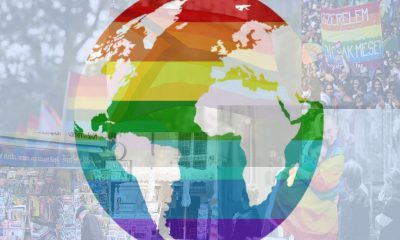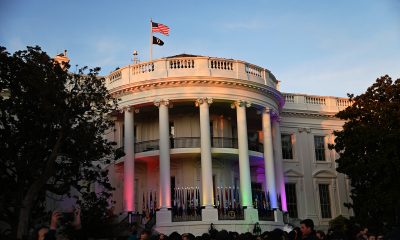World
President of Tonga LGBTQ rights group murdered
Polikalepo Kefu was killed near their home on May 1
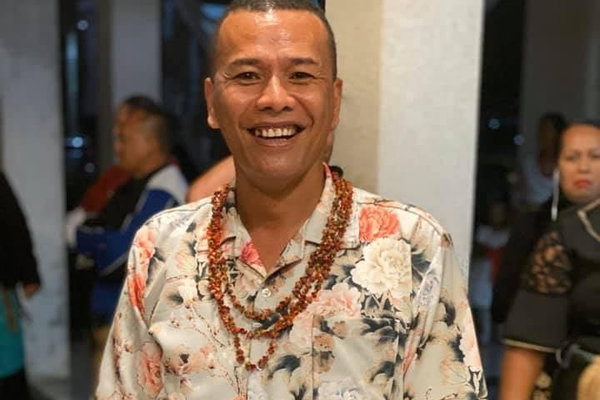
LAPAHA, Tonga — The president of an LGBTQ rights group in Tonga was murdered on May 1. Media reports indicate Tonga Leitis Association President Polikalepo Kefu was killed near their home in Lapaha, a village on the island of Tongatapu on which the Tongan capital of Nuku’alofa is located.
Deputy Tonga Police Commissioner Tevita Vailea on Monday in a statement said authorities have charged a 27-year-old man with murder.
“This is a tragic event, and our thoughts are with Mr. Kefu’s family, friends and wider community,” said Vailea.
The Tonga Leitis Association in a statement described Kefu as “a selfless humanitarian and a tireless advocate for the rights of those with diverse sexual orientations, gender identities and gender expressions.” The group also announced Cruella Tuinukuafe has been named interim president.
“In these dark and troubling times, we are reminded of Poli’s light and positive energy, and we encouraged knowing that this is when we are most needed to continue our work,” said the Tonga Leitis Association.
Amini Fonua, an openly gay Olympic swimmer from Tonga, also mourned Kefu.
“Hearing the news of Poli Kefu’s passing has left us all shocked and deeply saddened,” Fonua told the Blade on Tuesday in an email. “Poli was a beacon of light, whose smile and sense of humor touched so many lives. Poli’s work for equality and human rights is well documented through all his volunteer work and presidency at the Leitis Association. Poli was a fighter for all the voiceless LGBTQ people, not just in Tonga, but all throughout the Pacific.”
ILGA Oceania in a statement noted Kefu in February helped coordinate a virtual symposium it organized in Fiji.
“Poli was a humble gentle inspiring leader who displayed a proactive interaction with ILGA Oceania on its various projects and conferences,” said ILGA Oceania.
“In the spirit of activism and friendship, we will miss you Poli for your pro-active, strong activism, your commitment and dedication to LGBTI issues and movement throughout the kingdom of Tonga, the Pacific Islands and Oceania,” added the statement.
The Tonga Leitis Association was founded in 1992.
The organization specifically advocates on behalf of transgender and gender-variant Tongans and other members of the country’s LGBTQ community. The Tonga Leitis Association also provides health care and other services to people with HIV/AIDS.
Tonga is among the countries in which consensual same-sex sexual relations remain criminalized. Fonua during a 2017 interview with the Blade said anti-LGBTQ discrimination, homophobia and transphobia remain commonplace in his homeland.
“It is truly a devastating day when we learn that people in the Pacific are still being murdered for simply living in their truth,” said Fonua on Tuesday. “Poli’s death won’t be in vain, and we shall continue the fight for equality and equal protection under the law.”
Celebrity News
Lesbian comedian who performed in Saudi Arabia apologizes
Jessica Kirson invited to participate in Riyadh Comedy Festival

A lesbian comedian who performed at a comedy festival in Saudi Arabia has apologized.
Jessica Kirson joined Dave Chappelle, Pete Davidson, and dozens of other comedians who participated in the Riyadh Comedy Festival that began in the Saudi capital on Sept. 26 and is scheduled to end on Thursday.
Kirson performed on Sept. 29.
Saudi Arabia is among the countries in which consensual same-sex sexual relations remain punishable by death.
A U.S. intelligence report concluded Saudi Crown Prince Mohammed bin Salman “likely approved” the murder of Jamal Khashoggi, a Washington Post columnist, inside the Saudi Consulate in Istanbul in 2018. The Saudi government has also faced criticism over the treatment of women, migrant workers, and other groups in the country.
“On Sept. 29, I performed at the Riyadh Comedy Festival. This decision has weighed heavily on my heart ever since,” said Kirson in an exclusive statement to The Hollywood Reporter. “I like to express my sincere regret for having performed under a government that continues to violate fundamental human rights.”
She said she was “surprised” as “an openly gay person” to receive an invitation to perform at the comedy festival.
“I requested a guarantee that I could be openly out as a lesbian on stage and perform gay material. I hoped that this could help LGBTQ+ people in Saudi Arabia feel seen and valued,” said Kirson. “I am grateful that I was able to do precisely that — to my knowledge, I am the first openly gay comic to talk about it on stage in Saudi Arabia. I received messages from attendees sharing how much it meant to them to participate in a gay-affirming event. At the same time, I deeply regret participating under the auspices of the Saudi government.”
Kirson in her statement to THR said she “donated the entirety of what I was paid to perform there to a human rights organization.”
She did not say how much the comedy festivals paid her, or the group to which she donated her fee.
“I made this decision because I want that money to go to an organization that can help combat these severe issues,” said Kirson.
THR notes Marc Maron, David Cross, and Atsuko Okatsuka are among the comedians who criticized the festival. Kirson in her statement said she respects her “fellow comics who have spoken out against” it.
“I recognize the concerns and criticism this has raised. I hope that this moment sparks dialogue about how we can use our platforms for good — to support people without a voice and to find ways to be less divided,” she said. “In the past, I’ve faced criticism for choices I’ve made, both on and off stage, and I rarely responded. This time, I felt I needed to speak up. I could not remain silent.”
Kirson ended her statement with an apology to her fans and others she has “hurt or disappointed.”
“I have a special relationship with my fans because of the vulnerable nature of my comedy and the trust they place in me as part of the queer community,” she said. “To my fans: I see you. I hear you. Your voice matters to me. I love you all, and I am genuinely sorry for making a poor decision that had repercussions I didn’t fully consider. I will take full responsibility for my actions and dedicate myself to making amends, so that my words and choices reflect the respect and care you deserve.”
The 2034 World Cup will take place in Saudi Arabia.
Qatar, which borders Saudi Arabia, hosted the 2022 World Cup. Consensual same-sex sexual relations remain punishable by death in the Middle East country.
President Donald Trump in May visited Qatar, Saudi Arabia, and the United Arab Emirates.
Colombia
Luto en Antioquia y Colombia: asesinan a la activista trans y politóloga Victoria Strauss
Su ausencia deja un vacío enorme

La comunidad LGBTQ+ en Colombia está de luto tras conocerse el fallecimiento de Victoria Strauss, reconocida politóloga egresada de la Universidad de Antioquia, activista trans y defensora de los derechos humanos, quien además se desempeñaba como docente universitaria.
Victoria fue hallada sin vida este lunes en Santa Elena, Antioquia, después de haber sido reportada como desaparecida el 29 de septiembre. La noticia ha generado una profunda conmoción entre sus colegas, amistades y los movimientos sociales que la conocieron por su compromiso incansable en la defensa de la diversidad y la igualdad.
Un legado que no morirá
El trabajo de Strauss se consolidó como un pilar del activismo trans en Antioquia, inspirando a nuevas generaciones de liderazgos y abriendo caminos en la academia y en los espacios de participación social y política. Su ausencia deja un vacío enorme, pero también un legado que seguirá marcando la lucha por los derechos de la población LGBTQ+.
Desde OrgulloLGBT.co expresamos nuestra solidaridad con su familia, amistades y con todos los sectores de la sociedad que hoy sienten su partida. Exigimos a las autoridades que se investiguen de manera urgente las circunstancias de su muerte y que se esclarezca si existieron negligencias en la atención y búsqueda.
Hoy despedimos a una gran lideresa trans, cuya voz no se apagará y cuyo legado seguirá vivo en cada lucha por la igualdad.
Mongolia
UN urges Mongolia to do more to protect LGBTQ+ rights
Discrimination, lack of legal recognition undermine progress
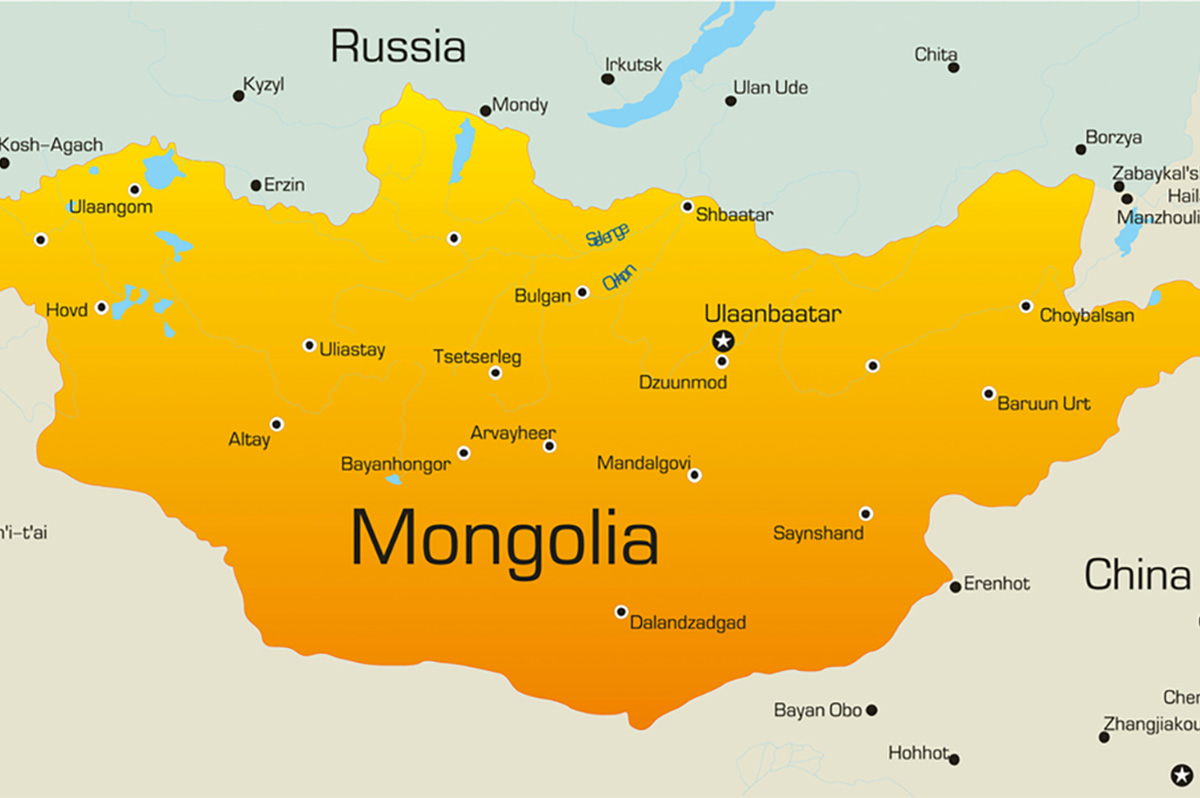
The U.N. earlier this year urged Mongolia to bolster protections for LGBTQ+ and intersex people, warning that entrenched discrimination and gaps in legal recognition continue to undermine recent progress.
In its Concluding Observations on the Fifth Periodic Report of Mongolia, the U.N. Human Rights Committee cited unreported attacks, bias in law enforcement, and the absence of rights for same-sex couples as barriers to equality in the country.
Mongolia has made measurable strides toward LGBTQ+ inclusion: decriminalizing consensual same-sex sexual relations, and outlawing discrimination based on sexual orientation and gender identity in its labor and criminal codes. Hate crime provisions allow for tougher penalties, and transgender people can amend legal documents to reflect their gender, though only after medical intervention. Mongolian law, however, stops short of recognizing same-sex marriages or civil unions, offers no status for nonbinary people, and provides limited protection for queer parents, leaving much of the community without full legal equality.
The Human Rights Committee also faulted Mongolia for the weak enforcement of its broader anti-discrimination framework, noting that few complaints reach the courts and prosecutions remain rare — a gap that limits remedies for LGBTQ+ people, despite legal protections on paper. The committee urged the government to widen the definition of discrimination, ease the burden of proof for victims, and raise public awareness about how to seek redress, alongside strengthening the reach and diversity of its National Human Rights Commission.
The U.N. Human Rights Committee has urged Mongolia to adopt sweeping anti-discrimination laws that protect people from bias in both public and private life, specifically including sexual orientation and gender identity. It also called for strong legal remedies and recommended that judges, prosecutors, and law enforcement officials receive proper training on discrimination, alongside broader efforts to raise public awareness about how victims can seek justice.
The report also called on Mongolia to intensify efforts to combat stereotypes and prejudice against LGBTQ+ and intersex people. It urged authorities to ensure that acts of discrimination and violence targeting them are thoroughly investigated, that perpetrators are prosecuted and, if convicted, receive appropriate penalties, and that victims are granted full reparations.
The committee further recommended guaranteeing freedom of peaceful assembly for LGBTQ+ and intersex people, including during the annual Equality Walk at Chinggis Square in Ulaanbaatar, the Mongolian capital, ensuring that any restrictions are applied fairly and in line with international standards. The report also highlighted the need for legislation that recognizes and protects same-sex couples.
The U.N. report also raised alarms over restrictions on peaceful assembly in Mongolia, citing accounts that authorities have curtailed demonstrations critical of the government as well as gatherings in support of LGBTQ+ and intersex rights. While acknowledging a draft revision of the 1994 law on demonstrations and assembly that would shift to a notification system, the committee warned a proposed requirement for police authorization to use main roads could undermine those reforms. It further expressed concern about reports of disproportionate force and arbitrary detentions during protests, and about a pending bill to amend the Criminal Code to impose prison sentences on those obstructing mining or other development projects, which could erode protections for the right to peaceful assembly.
Authorities on Dec. 4, 2024, arrested Naran Unurtsetseg, editor-in-chief of Zarig.mn, an independent news site, and held her for 68 days on charges that included contempt of court and spreading false information after she criticized judges and a prosecutor online. The arrest took place weeks after the General Judiciary Council urged an investigation into her remarks, and the site was briefly blocked ahead of her detention. The case has drawn sharp criticism from press freedom groups over the misuse of criminal defamation laws to stifle critical journalism in Mongolia.
Erdeneburen Dorjpurev, deputy director of the LGBT Center in Mongolia, told the Los Angeles Blade that in recent years her organization has handled several cases in which police officers themselves perpetrated prejudice, discrimination, abuse and harassment against LGBTQ+ people.
“These cases often make up around 30 percent of our referrals,” Dorjpurev noted.
She cited a 2022 incident in which officers allegedly forced their way into a gay couple’s home without a warrant, physically assaulted and verbally abused them, and mocked their sexual orientation. Dorjpurev said the officers also demanded access to the couple’s personal devices and, after obtaining it, circulated intimate videos among themselves and to others, deliberately humiliating the pair because of their identity.
“The survivor of this incident refrained from reporting this incident due to a fear of further harassment and abuse from the police,” Dorjpurev told the Blade. “The police officers in this incident, deliberately treated the couple with hostility, using derogatory terms in referring to their sexual and gender orientation. The police abused the position and power to humiliate the survivors by treating them inhumanely due to their own prejudice and discrimination against the LGBTQI+ community.”
Dorjpurev said the U.N. Human Rights Committee report underscored persistent mistreatment of LGBTQ+ people in Mongolia by police and healthcare providers. She noted incidents of discrimination and inhumane treatment “are still not being taken seriously and are often refused as official complaints,” leaving victims with little recourse. Dorjpurev added her organization urged authorities to expand scrutiny of human rights conditions for LGBTQ+ people in detention facilities, prisons, military bases, and other closed institutions, stressing the need to ensure those spaces are safe for sexual and gender minorities.
“While the Criminal Code includes provisions that sanction discrimination based on sexual orientation and gender identity, we still lack the proper tools to protect and support individuals. Even today, we still struggle in safe reporting, file complaints against any discriminatory acts,” Dorjpurev told the Blade. “This is due to the fact that individuals are still refused service from state services, still treated unfairly as well as still face harassment and discrimination from service providers. There is still a culture where an individual’s private information is disclosed without their consent, especially around their sexual orientation and gender identity. Further, service providers additionally utilize derogatory terms to shame and embarrass individuals, as well as repeatedly ask unnecessary, provoking questions around their gender and sexual orientation and identity.”
Dorjpurev further noted that, given this climate, most LGBTQ+ people in Mongolia are reluctant to seek help from state agencies or even private service providers, fearing further mistreatment or denial of their basic rights. Legal assistance is also scarce, she said, as few lawyers or other professionals focus on human rights and anti-discrimination cases.
Dorjpurev recalled a lawyer who collaborated with the LGBT Center on a case in 2019 faced harassment and discrimination simply for representing an LGBTQ+ client.
Dorjpurev highlighted that, to date, there has not been a single successfully resolved case of discrimination under Article 14.1 of the Criminal Code.
The LGBT Center in 2019 filed a complaint against a high-ranking state official who abused his authority to remove the organization’s posters from buses during Equality and Pride Days and posted anti-LGBTQ+ content on social media. Dorjpurev noted prosecutors at multiple levels rejected the case, despite many complaints.
“In Mongolia, despite not following ‘Western’ conversion therapy, we have our traditional Shamanic religion as well as Buddhism which still heavily influences our society,” she said.
“We have been referred to cases where community members have been subject to religious conversion — this mostly impacts those under the age of 18 where their parent or guardian believes they are suffering from a mental illness or other forms of health issue therefore forces them into meeting religious figures and shamans.” added Dorjpurev. “This is because the parent or the guardian often believe that they would be able to ‘pray away’ or ‘wash away’ their queer identity. These kinds of practices are often repeated on a daily basis having a severe impact on the mental wellbeing of their children; in some incidents these children are forced into having sexual intercourse with the opposite sex in order to ‘make them straight.’”
The LGBT Center in 2021 worked on the case of an gay 18-year-old who was told he would be burned with a hot stone and whipped if he did not become straight and gender conforming. Dorjpurev noted this man “was also referred to be sent to a psychiatrist where he was administered various different psyche-altering medications.”
Dorjpurev emphasized a key step for the Mongolian government is to demonstrate genuine commitment to LGBTQ+ and intersex rights and to transparently engage with civil society organizations. She noted that while various policies and laws have been introduced in the name of protecting LGBTQ+ and intersex people, these measures have largely excluded direct input from human rights defenders, limiting their effectiveness and accountability. Dorjpurev added these policies would have a stronger impact if developed in genuine consultation with civil society, ensuring concrete human rights provisions.
The LGBT Center, the National Human Rights Commission, and the Ulaanbaatar mayor’s office in 2024 co-organized a roundtable to discuss LGBTQ+ and intersex rights. Dorjpurev said this collaboration made the 2024 and 2025 Equality Marches possible.
She told the Blade that such examples demonstrate the benefits of consistent engagement with NGOs to build meaningful civic space and translate Mongolia’s commitment to equality into practice.
Dorjpurev called on international organizations, particularly the U.N., to continue supporting activists through in-person advocacy, technical assistance, and by improving both physical and language accessibility. She urged the U.N. to strengthen its role in monitoring the implementation of treaty body recommendations, working closely with the Resident Coordinator’s Office, and ensuring in-country teams engage directly with NGOs. Dorjpurev stressed that national-level dialogue must be inclusive, bringing together government agencies, civil society organizations, the U.N. Development Program, UNICEF, and other relevant U.N. bodies to guarantee meaningful participation and accountability.
“International NGOs also have a critical role to play,” said Dorjpurev, who specifically praised ILGA World, ILGA Asia, COC Nederland from the Netherlands, and other NGOs. “But more INGOs need to step up to support local civil society organizations in engaging with UN mechanisms.”
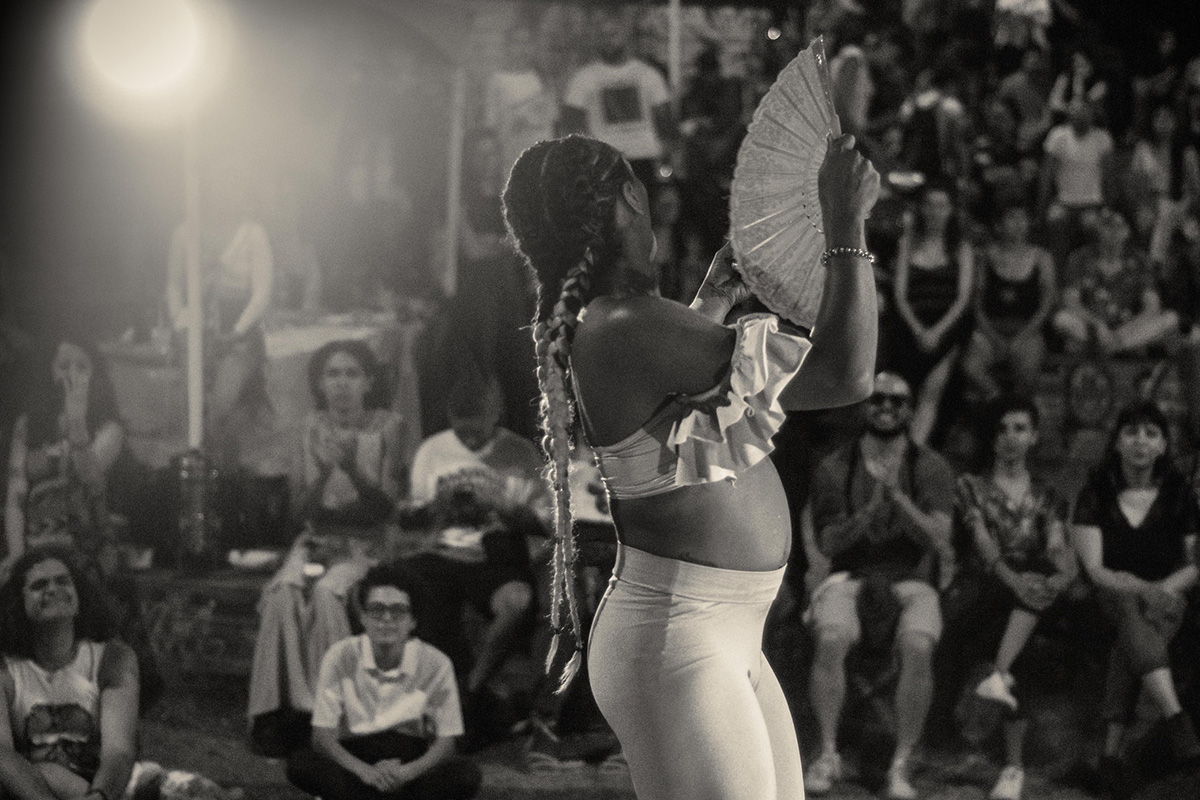
En el corazón de Medellín hay una red que late con fuerza propia. No aparece en los grandes titulares, pero su presencia se percibe en el sonido de un tambor que marca el ritmo de un ensayo, en las manos que se manchan de colores para pintar un mural, en el aire tibio que entra por las ventanas abiertas y se mezcla con el eco de una risa, en los abrazos que cierran una jornada. Es la Red Popular Trans, una plataforma comunitaria que ha hecho del arte, la naturaleza, las espiritualidades y la organización social una herramienta de vida para cientos de personas trans, no binaries y cuir, un lugar donde la creatividad fluye como el agua, se expande como el viento y se enraíza como un árbol que crece en suelo fértil.
Allí, los sueños se tejen en colectivo y las puertas que antes parecían cerradas se abren para dejar pasar la luz. De ese trabajo nació el Festival Interdisciplinar de Artes Trans – Travar las Artes, organizado junto a la colectiva Pajarapintadanza y fundado con el impulso y liderazgo de Ale Álvarez, quien fue una de sus creadoras y principal representante durante los primeros cuatro años. Este festival no es un evento para la foto, es el primer festival de arte trans en Colombia dirigido por personas trans y para personas trans, un hecho histórico que ha marcado un antes y un después en la cultura del país.
No es un simple espacio de exhibición: es un laboratorio vivo de resistencia y cuidado donde la danza, el teatro, la música, la poesía y las artes visuales dialogan con la tierra, el cuerpo y la voz, devolviéndoles su poder y transformándolos en acto político y en celebración de la vida. Travar las Artes ha demostrado que la cultura también puede ser una trinchera de libertad, y que es posible resignificar tradiciones para abrir nuevos caminos. Basta recordar la reinterpretación del bullerengue, una danza tradicional colombiana, llevada a escena desde una mirada queer y desafiante. Poner a una travesti a bailar bullerengue no fue un simple acto estético, sino un gesto político que desafió estructuras hegemónicas y abrió posibilidades de representación que antes parecían impensables.
En este espacio no hay protagonistas únicos. Cada historia es un cauce que alimenta un mismo río: la joven que encontró en la danza un lenguaje para hablar de su identidad sin miedo, el actor que convirtió su transición en una obra de teatro que recorre barrios y escuelas, la cantante que lleva su voz a escenarios comunitarios porque sabe que allí también se construye país. Entre esas historias, una brilla con especial fuerza: la de Ale.
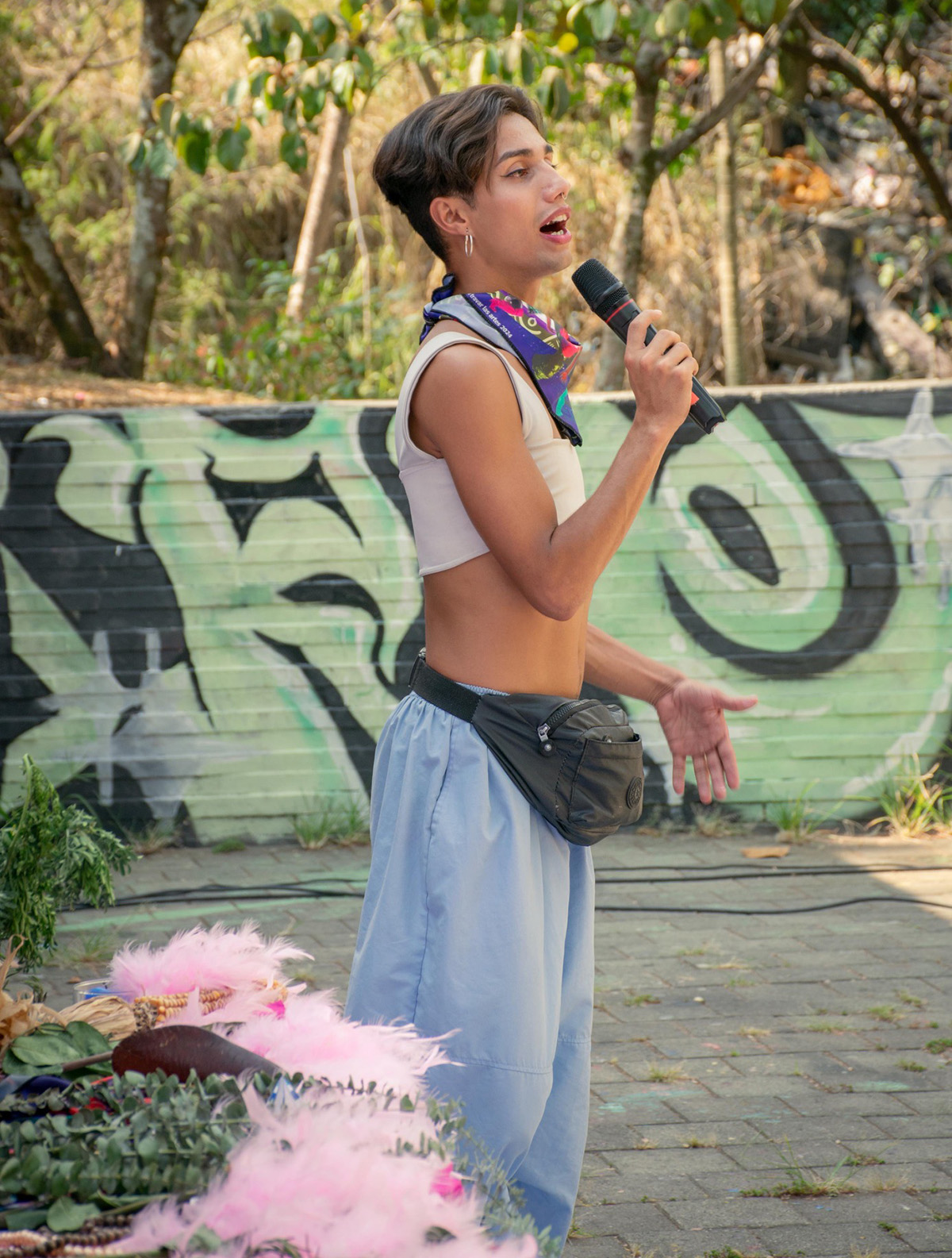
Ale llegó a la Red Popular Trans buscando un lugar seguro donde pudiera ser sin explicaciones ni condiciones. Lo encontró, y encontró también un espejo en el arte, una forma de reconocerse. Lo que empezó como curiosidad por la danza se volvió vocación y raíz. Hoy es licenciada en Danza, graduada con honores, y ha regresado a los mismos espacios que la vieron crecer para guiar a otres que, como ella, buscan un camino. En cada taller que facilita, Ale recuerda que antes de ser profesional fue una persona que necesitaba escuchar: “Aquí eres bienvenide”.
Esa frase resume la esencia de lo que aquí ocurre. La Red Popular Trans no solo impulsa el festival: organiza talleres permanentes, acompaña procesos de salud y bienestar, conecta artistas con oportunidades y teje redes de apoyo que se sostienen incluso fuera del escenario. Pajarapintadanza ha puesto el cuerpo, el movimiento y el espíritu al servicio de la pedagogía queer y decolonial, demostrando que el arte puede sanar, movilizar y transformar.
En estas redes, cada logro individual es una victoria colectiva. Cuando une bailarín trans pisa un escenario, cuando une pintore no binarie exhibe su obra, cuando une poeta cuir recita frente a su comunidad, toda la red respira con orgullo. El arte que nace aquí no es lujo, es necesidad; no solo inspira, sino que salva. Es viento que acaricia, raíz que sostiene, agua que fluye y fuego que enciende. El trabajo comunitario, constante y apasionado, convierte historias marcadas por el dolor en relatos de resiliencia y esperanza. Ale, la Red Popular Trans, Pajarapintadanza y Travar las Artes son prueba viva de ello, recordándonos que mientras haya cuerpos que bailen, voces que se alcen y manos que creen, siempre habrá un lugar para empezar de nuevo, y a veces, sin darnos cuenta, ese lugar se convierte en hogar.
Honduras
EPU: Honduras en deuda en violencia, niñez y diversidad sexual
Más de 70 organizaciones presentaron informes
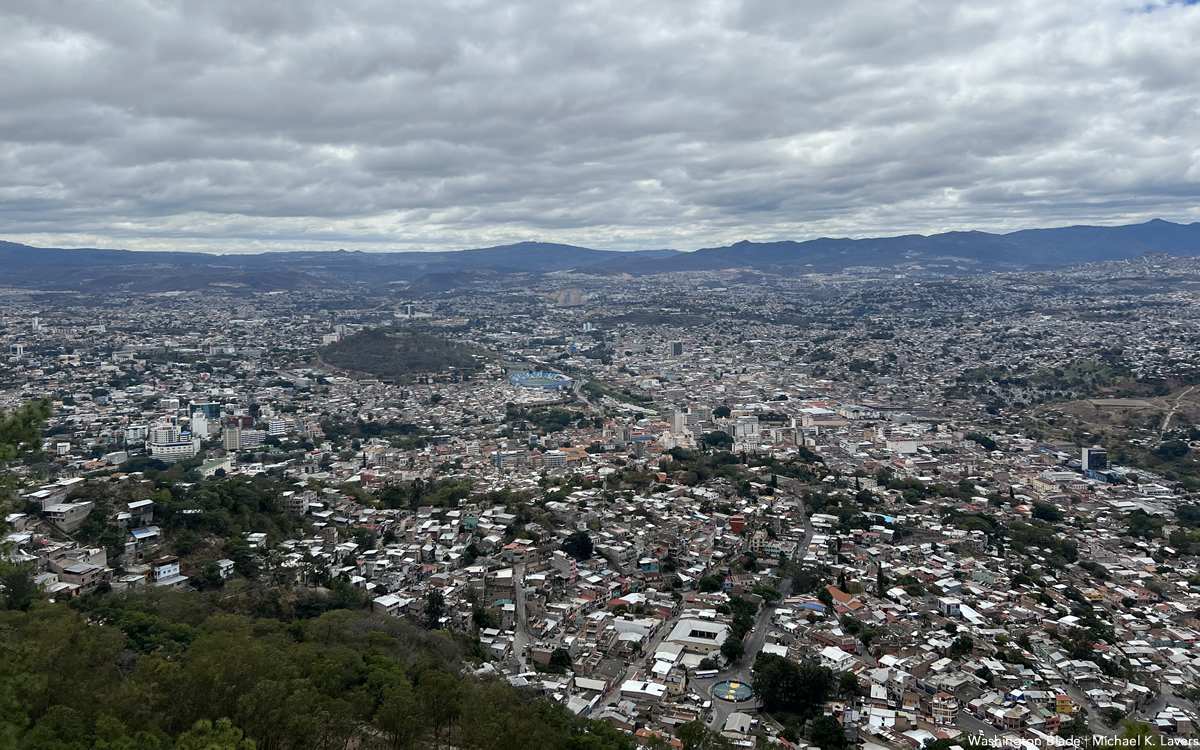
Por NAZARETH GÓMEZ | TEGUCIGALPA, Honduras — En el marco del Examen Periódico Universal (EPU), mecanismo del Consejo de Derechos Humanos de la ONU, organizaciones de sociedad civil en Honduras presentaron informes alternativos para evidenciar el incumplimiento de compromisos en materia de derechos humanos. Las recomendaciones al Estado serán revisadas en noviembre de 2025, cuando Honduras enfrente su evaluación internacional.
Durante el evento se compartieron siete informes temáticos sobre mujeres, niñez, diversidad sexual, personas defensoras, tierra, discapacidad y radios comunitarias. Las organizaciones exigen que las recomendaciones se traduzcan en acciones reales.
Violencia contra las mujeres y retrocesos legales
La Plataforma EPU Mujeres denunció que entre 2020 y 2024 se registraron más de 1,500 muertes violentas de mujeres y más de 8,600 evaluaciones médicas por violencia sexual. Solo hay tres juzgados especializados y 72 fiscales para más de 100 mil denuncias anuales.
También alertaron que no se ha aprobado la Ley Integral contra la Violencia hacia las Mujeres ni la Ley de Violencia Política. Ciudad Mujer opera solo en seis ciudades, dejando sin cobertura al 42.8 por ciento de las mujeres. “Seguimos exigiendo voluntad política para avanzar”, afirmaron.
Niñez: pobreza, violencia y abandono estatal
Organizaciones como Coiproden expusieron que el 66.8 por ciento de la niñez vive en pobreza y que siete de cada diez están en situación de pobreza multidimensional. Aunque se ha creado la Secretaría de Niñez y se aprobó una política nacional, aún no hay presupuesto suficiente ni liderazgo institucional claro.
Entre 2020 y 2024, más de 270 niñas, niños y adolescentes murieron por violencia. También se reportaron más de 800,000 alertas de desaparición, de las cuales el 30 por ciento corresponde a niñez. Las organizaciones exigen actualizar la política de prevención de violencia y fortalecer el sistema de protección.
Diversidad sexual: impunidad y exclusión
Desde 2009, más de 400 personas LGBTQ+ han sido asesinadas en Honduras, con un 93 por ciento de impunidad. Las organizaciones denunciaron la falta de avance en la aprobación de la Ley de Identidad de Género, el reconocimiento legal del matrimonio igualitario y la adopción de políticas inclusivas.
“El Estado mantiene patrones de discriminación institucional. No basta con crear políticas si no hay voluntad para implementarlas”, señalaron.
Solo existen seis fiscales a nivel nacional para investigar estos crímenes.
Territorio, pueblos indígenas y represión
El Centro de Estudios para la Democracia denunció que más de 1.8 millones de personas enfrentan inseguridad alimentaria grave. No se han hecho reformas para resolver la deuda agraria ni se han implementado sentencias a favor de comunidades garífunas.
También señalaron que, a pesar de existir un mecanismo de protección, Honduras sigue siendo uno de los países más peligrosos para las personas defensoras. “Se asesina, se criminaliza y no hay respuestas del Ministerio Público”, denunciaron.
Llamado urgente
Las organizaciones exigieron al Estado hondureño tomar con seriedad las recomendaciones del EPU.
Además, exigieron asumir compromisos reales con los sectores históricamente excluidos y garantizar el cumplimiento de los derechos humanos desde una visión integral y con enfoque de justicia.
Los informes completos están disponibles para consulta pública.
Bangladesh
LGBTQ+ Bangladeshis increasingly vulnerable a year after government toppled
Protests forced then-Prime Minister Sheikh Hasina to resign in August 2024
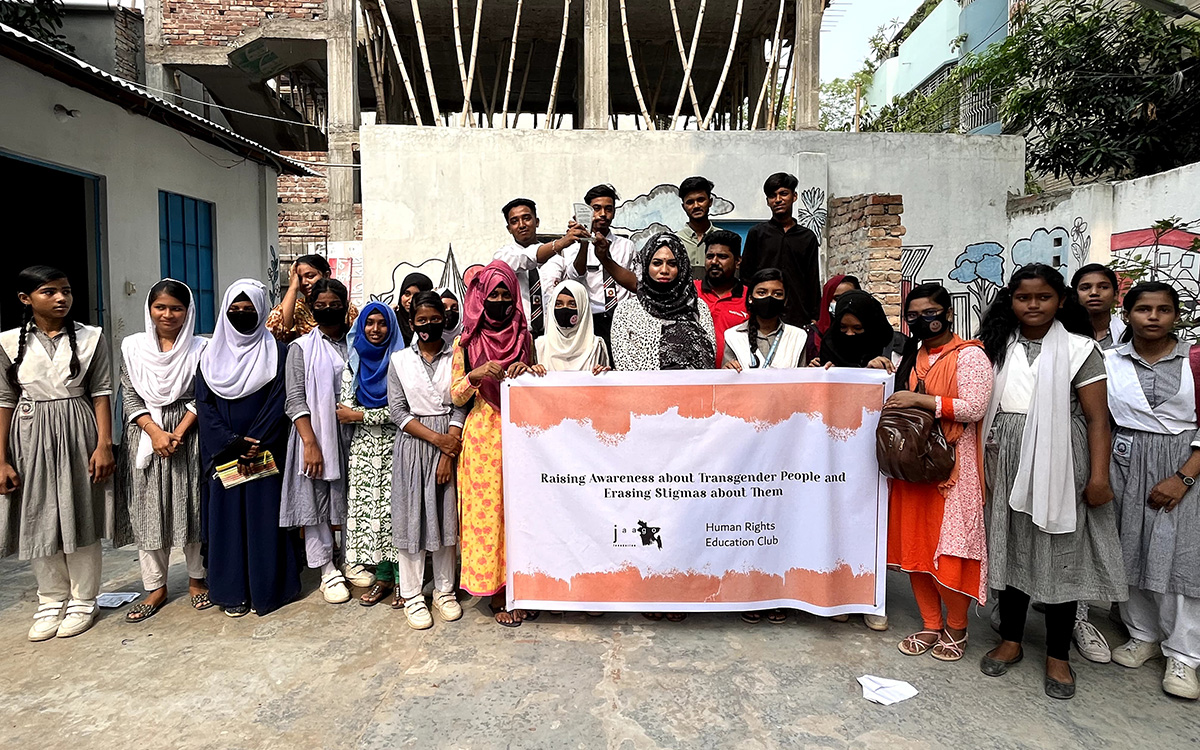
Tuesday marks one year since former Prime Minister Sheikh Hasina resigned and fled Bangladesh, triggering a political crisis that unleashed widespread unrest. The country since her ouster has faced a surge in mob violence and lynchings, with the LGBTQ+ community at the epicenter.
The Los Angeles Blade reported in August 2024 the collapse of public order forced many in this marginalized group into hiding, seeking refuge in safe houses as vigilante attacks intensified. A year later, as the country grapples with ongoing instability and a weakened law enforcement system — marked by a 30 percent vacancy rate in police positions — the experiences of the LGBTQ+ community offer a stark measure of Bangladesh’s social and political recovery.
Tushar Kanti Baidya, program director of Inclusive Bangladesh, an LGBTQ+ advocacy organization, told the Blade the landscape for LGBTQ+ rights in Bangladesh has shifted since the 2024 political crisis. Unfortunately, Baidya said, this change has taken a deeply concerning direction.
“Over the past decade, we have worked hard to build positive visibility for LGBTQ individuals, particularly transgender persons. However, that progress is now under threat due to the increasing influence of right-wing political groups and their allies,” said Baidya. “These groups continue to deny the legitimacy of transgender identities and are actively engaged in coordinated campaigns against the broader LGBTQ community.”
“The hostile environment has resulted in widespread discrimination, harassment, and violence. Transgender individuals, in particular, are being targeted, facing physical assault, bullying, and restrictions in continuing their traditional professions,” noted Baidya. “Even those who have contributed significantly to human rights efforts are not spared.”
Baidya said Sanjiboni Sudha, the group’s executive director, was “consistently harassed and pressured to resign from her position” at BRAC bank, a financial institution affiliated with BRAC, a prominent NGO.
“Despite reaching out to the bank’s general manager and BRAC’s executive director, Mr. Asif Saleh, we received no substantive response,” Baidya told the Blade. “The matter was ultimately dismissed as an ‘internal issue’ of the bank.”
Baidya said Sanjiboni lost her scholarship at the University of Dhaka after the sudden abolition of the trans quota, with no follow-up guidance to address the decision’s impact. Baidya added another colleague, Saraban Tahura, was denied a contract renewal at Walton Group, a private company, while her cisgender colleagues in similar roles were retained.
“Members of our community who openly supported a new political party were expelled from its committees once their sexual or gender identity became public,” Baidya told the Blade. “Incidents of blackmail, hate crimes, and even killings have escalated significantly.”
“As a result of this widespread and systemic backlash, many members of the LGBTQ community in Bangladesh have been forced into silence, living in fear, and waiting for a safer and more inclusive future,” added Baidya.
Mohammad Rafiqul Islam, a gay man, was brutally murdered in Gazipur, a city just north of Dhaka, Bangladesh’s capital, on July 19.
The killing, described by JusticeMakers Bangladesh in France, a Paris-based human rights organization, as premeditated, has intensified fears among marginalized groups.
JusticeMakers Bangladesh in France’s 2024 report documents a sharp rise in violence against Bangladesh’s LGBTQ+ community.
The report noted that following the fall of Hasina’s government and the formation of an interim administration led by Nobel laureate Muhammad Yunus, Islamist fundamentalist groups gained significant influence. Exploiting the ensuing political instability, these groups unleashed a wave of attacks on LGBTQ+ people, exacerbating the community’s vulnerability amid a deteriorating security landscape.
Baidya told the Blade that under Hasina’s administration, minority communities — religious, sexual, gender, and ethnic groups — benefited from inclusive policies and targeted social safety programs. Hasina’s government, he said, showed a clear commitment to supporting marginalized groups through institutional measures and public acknowledgment, fostering a more protective environment before the 2024 political upheaval.
“In contrast, the current interim government has yet to demonstrate any meaningful action to uphold or continue these protections.,” said Baidya. “There has been no clear initiative or policy commitment aimed at safeguarding the rights of minority groups, leaving these communities in a state of uncertainty and heightened vulnerability. This lack of proactive engagement from the present leadership is particularly concerning, as it signals a potential regression in the hard-won progress made toward equality and inclusion in Bangladesh.”
Hasina’s government from 2013-2021 enacted several trans-inclusive policies, notably granting legal recognition to the trans community as a third gender in 2013 for official documents, including passports and voter ID cards. These measures enabled trans people to apply for government jobs and vote under their recognized gender identity.
Bangladesh also became one of the few South Asian countries to offer tax rebates to companies employing trans people, bolstering economic inclusion before Hasina’s government fell.
The Yunus-led interim government has not introduced any policies to advance LGBTQ+ inclusion, aligning instead with conservative and Islamist political groups, some known for actively opposing LGBTQ+ rights. The administration lifted a ban on Jamaat-e-Islami, a conservative Islamist party with a history of resisting LGBTQ+ protections.
“There have been widespread allegations suggesting that the recent anti-government protests were indirectly supported by foreign actors, particularly the United States,” noted Baidya. “Claims have emerged that USAID (U.S. Agency for International Development)-funded certain individuals and NGOs with the intention of promoting an agenda aimed at unseating the previous government.”
“It is well-documented that Professor Muhammad Yunus, a central figure in the current political transition, has maintained strong ties with previous U.S.-aligned democratic administrations,” he added. “Given this context, it is unlikely that the current Republican-led U.S. government will significantly alter its position, especially if the current political arrangement serves broader strategic or geopolitical interests.”
Baidya told the Blade that Yunus’s government has persued policies that undermine LGBTQ+ peoples’ fundamental rights. Rather than fostering inclusion or dialogue, he said the current government has intensified measures that marginalize and dehumanize sexual and gender minorities, deepening their exclusion amid Bangladesh’s volatile political landscape.
“This inconsistency highlights a troubling double standard, where political rhetoric is used to gain power, but once in control, the same government disregards human rights and fails to protect the very communities it previously criticised others for engaging with,” said Baidya, who added women and trans activists in particular have become targets.
“Many have been forced to relocate within the country after receiving credible threats of abduction, sexual violence, and even death,” he said. “These threats have created a climate of fear and forced many into silence or isolation.”
Baidya told the Blade that trans Bangladeshis are under increased pressure to conceal their gender identity.
Prominent community members, once visible in public and advocacy spaces, have sharply curtailed their activities due to safety concerns. Those with resources or international connections, Baidya noted, are increasingly seeking to leave the country in pursuit of safety and dignity.
He said Inclusive Bangladesh receives up to 10 requests for support and relocation assistance each week. Baidya told the Blade that restrictive visa policies in the U.S. and European countries have left many LGBTQ+ Bangladeshis in limbo.
Neither Hasina nor her political party, the Bangladesh Awami League, have returned the Blade’s request for comment.
“Currently, no major political party has openly expressed support for LGBTIQ+ rights,” said Baidya. “In the absence of political backing, our only path forward is to persist through strategic advocacy, community engagement, and policy lobbying. We must continue working tirelessly to ensure that the rights of LGBTIQ+ people are eventually recognized, respected, and institutionalized.”
Cuba
Cuban lawmakers simplify process for trans people to change IDs
Activists who criticize government harassed, detained
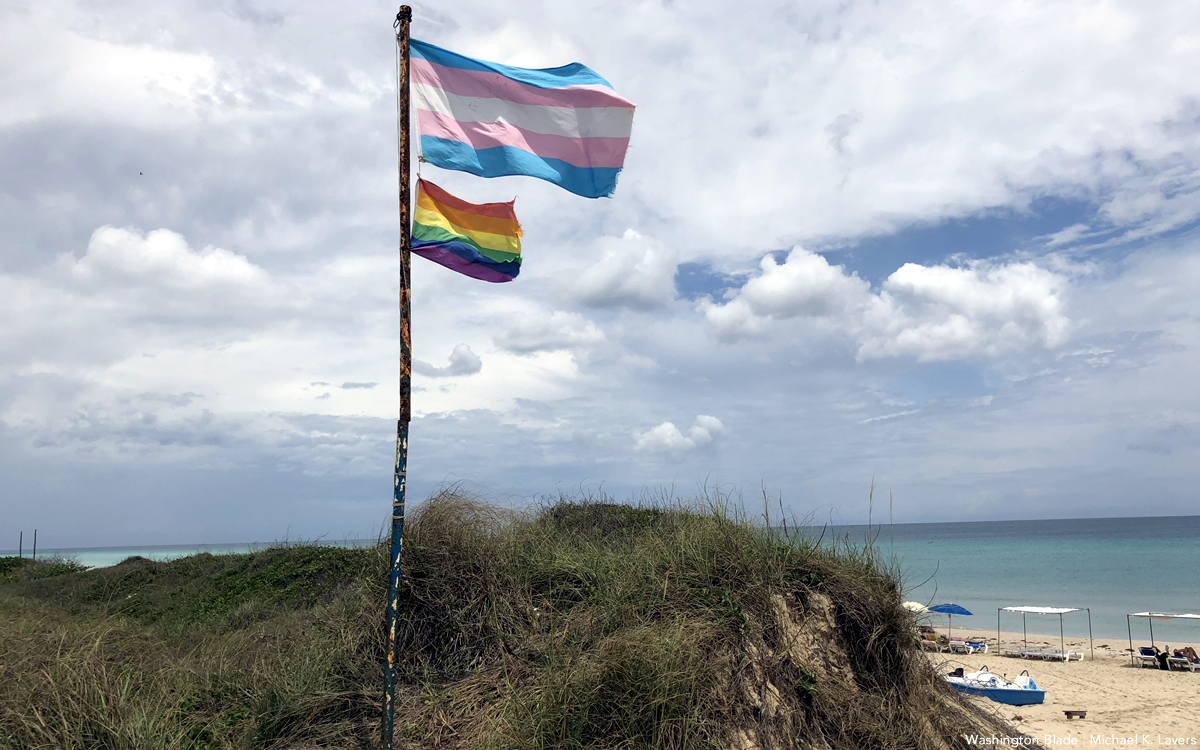
Cuban lawmakers earlier this month approved an amendment to the country’s Civil Registry Law that will allow transgender people to legally change the gender marker on their ID documents without surgery.
Francisco Rodríguez Cruz, an activist and journalist who works with the National Center for Sexual Education that Mariela Castro, the daughter of former Cuban President Raúl Castro, directs, in a Facebook post noted the National Assembly on July 18 unanimously approved several amendments to the Civil Registry Law that contain “important guarantees and rights for trans and intersex people in Cuba, and in general for all of our LGBTI citizenry.”
“The new law establishes as rights and obligations under the civil registry the principle of equality under the law without discrimination based on sexual orientation and gender identity, among other grounds, established in the 2019 constitution,” wrote Rodríguez.
The 2019 constitution that Cubans overwhelmingly approved in a referendum did not include marriage rights for same-sex couples. Cubans in a 2022 referendum endorsed a new family code that paved the way for marriage equality on the Communist island.
Rodríguez notes the revised Civil Registry Law, among other things, opens the doors for the legal recognition of parents who are the same sex and trans and intersex children.
“Cuba advances towards equality,” said the International Lesbian, Gay, Bisexual, Trans, and Intersex Association for Latin America and the Caribbean (ILGALAC) in response to the vote.
Argentina, Uruguay, Germany, and Malta are among the countries that allow trans people to legally change their name and gender without surgery.
Cuba’s national health care system has offered free sex-reassignment surgery since 2008, but activists who are critical of Mariela Castro and CENESEX have said access to these procedures is limited. Mariela Castro, who is also a member of the National Assembly, in 2013 voted against a measure to add sexual orientation to Cuba’s labor code because it did not include gender identity.
The Cuban constitution bans discrimination based on sexual orientation and gender identity, among other factors. Authorities, however, routinely harass and detain activists who publicly criticize the government.
Authorities in 2021 arrested Brenda Díaz, a trans woman with HIV who participated in an anti-government protest in Artemisa Province.
A Havana court sentenced her to 14 years in prison. Independent journalists reported authorities “forced” Díaz to serve her sentence in a men’s prison. Authorities in January released her after the Vatican helped broker a deal in which then-President Joe Biden agreed to delist Cuba as a state sponsor of terrorism. (The Trump-Vance administration restored the designation shortly after it took office.)
The Cuban government in 2019 refused to allow this reporter to enter the country to cover International Day Against Homophobia, Transphobia and Biphobia events. Authorities detained him at Havana’s José Martí International Airport for several hours before they allowed him to board a flight back to the U.S.
Japan
Anti-LGBTQ+ party gains power in Japanese Diet
Sanseitō on July 20 won 14 House of Councillors seats
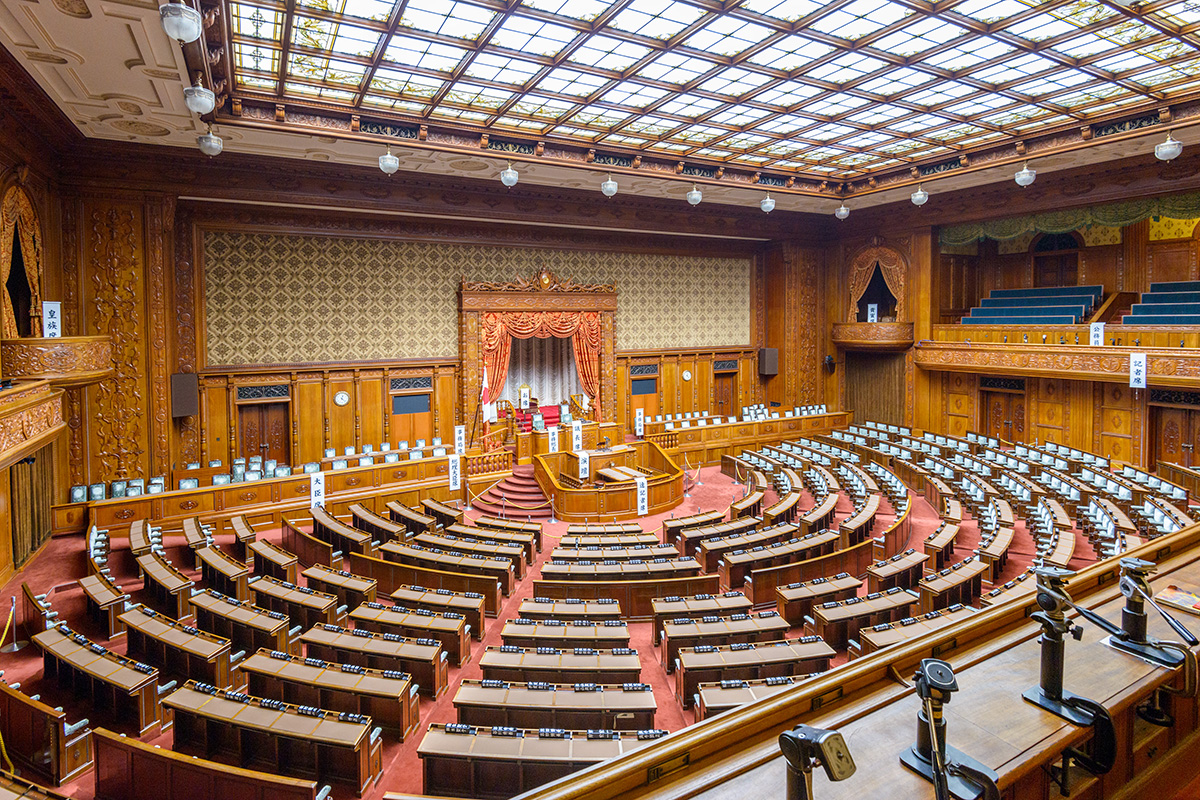
Japan’s Liberal Democratic Party-Komeito coalition on July 20 lost its majority in the upper house of the country’s Diet, securing only 47 of the 125 seats up for grabs in the 248-member chamber.
Sanseitō, a right-wing populist party, surged from one to 14 seats, gaining legislative proposal power. Led by Sohei Kamiya, its anti-LGBTQ+ stance that includes opposition to marriage equality and school discussions, raises concerns for the community’s rights.
On July 3, a day after Sanseitō’s campaign began, Kamiya, its leader and chief spokesperson, criticized Japan’s gender equality policies as “misguided.” In a speech, he supported a 100,000 yen ($673.80) monthly child allowance to boost birth rates, but opposed diversity initiatives and gender policies, claiming they weaken traditional Japanese culture.
In campaign materials and voter guides, Kamiya opposed marriage equality, the 2023 Act on Promotion of Public Understanding of Diversity of Sexual Orientation and Gender Identity, and LGBTQ+ education in schools. Sanseitō’s platform, detailed in its official 2025 election manifesto published on its website, rejects these policies, a position Kamiya reinforced in a July 3 speech covered by the Asahi Shimbun, one of the oldest Japanese daily newspapers, aligning with the party’s “Japanese First” agenda.
The Diet on June 16, 2023, passed the Act on the Promotion of Public Understanding of Diversity of Sexual Orientation and Gender Identity. The law mandates that the national government, local authorities, businesses, schools, and employers foster understanding of diverse sexual orientations and gender identities, to create a tolerant society and prevent unfair discrimination.
The Los Angeles Blade in March reported the Nagoya High Court declared Japan’s lack of legal recognition for same-sex marriages unconstitutional. The ruling strengthened advocates’ push for marriage equality in Japan, the only G7 nation yet to grant such rights.
Five Japanese high courts — in Sapporo, Tokyo, Fukuoka, Nagoya, and Osaka — between March 2024 and March 2025 ruled the country’s ban on same-sex marriage is unconstitutional, citing violations of constitutional guarantees of equality and individual dignity under Articles 13, 14, and 24.
The Liberal Democratic Party-Komeito coalition’s loss of its House of Councillors majority election, the first since 1955, hinders Prime Minister Shigeru Ishiba’s ability to advance progressive legislation. The coalition’s minority status in both houses of the Diet requires consensus with opposition parties, such as the Constitutional Democratic Party or the Democratic Party for the People, a challenge given ideological divides and Sanseitō’s growing influence.
“We do not believe that the results of this election have a significant impact on the LGBTQ+ movement in Japan. However, we are concerned that the negative claims and misinformation about LGBTQ+ issues spread by right-wing political candidates and their supporters during the election campaign may have had a negative impact on society,” said Takeharu Kato, director of Marriage for All Japan. “We have not yet fully analyzed the reasons behind the gains made by right-wing parties such as Sanseitō in this election.”
“However, we need to be aware that it is becoming easier for populist parties to gain support due to the spread of social media,” added Kato. “Their arguments regarding same-sex marriage and transgender issues are completely unfounded, but such claims are being spread on social media without any fact-checking.”
Kato noted the proportion of MPs supporting marriage equality legalization dipped slightly from 46 percent to 45 percent. Kato emphasized that while the election outcome does not fundamentally alter the LGBTQ+ movement’s strategy, it requires tailored lobbying efforts to navigate the evolving political dynamics.
“At present, we are analyzing the reasons for the rise of right-wing political parties, and no specific action plan has been decided yet,” said Kato. “Support for populist parties and politicians is growing worldwide.
Their arguments often have commonalities, such as xenophobia and anti-gender equality. Therefore, I believe it is increasingly important to launch campaigns to counter these movements through international cooperation. Domestically, I also think it is important to collaborate with activists and movements for separate surnames for married couples.”
Kato told the Blade that with minority rights increasingly threatened, Japan’s courts, viewed as the last bastion for protecting human rights, must take bold action. On marriage equality legalization, he urged the judiciary to not only rule the current ban unconstitutional but also direct legislative changes and limit the Diet’s discretion
“Even after this election, the percentage of Diet members who support the legalization of same-sex marriage has remained almost unchanged from before the election. In other words, even after this election, roughly half of Diet members support the legalization of same-sex marriage,” said Kato. “Therefore, the results of this election should not be interpreted as reflecting a negative or cautious public opinion toward the legalization of same-sex marriage. We would like you to report this accurately.”
Akira Nishiyama, an activist with the Japan Alliance for LGBT Legislation, told the Blade that Sanseitō’s seat gains in the House of Councillors are likely to amplify discriminatory rhetoric during Diet sessions, potentially hindering progress on sexuality-related bills and policies.
“The specific details of the basic implementation plan and guidelines under the Sexual Orientation and Gender Identity (SOGI) Awareness-raising law will be formulated later, therefore we can’t take our eyes off from how the result of election will affect the process of formulation,” said Nishiyama. “In any case, we intend to confront fake news that is being spread while avoiding drawing too much attention to right-wing and extreme right-wing groups and refraining from contributing to their propaganda.”
Nishiyama said that while resisting right-wing and far-right attacks domestically is essential, the LGBTQ+ community must avoid letting these groups dominate attention. Instead, collaboration is needed to reinforce freedom, human rights, and democracy. Internationally, Nishiyama urged overseas media to expose the coordinated nature of anti-LGBTQ+ attacks, tracing their sources and funding, and to highlight any efforts by hegemonic powers to weaken democratic forces through such campaigns.
Mameta Endo, a transgender rights activist in Japan with Niji-zu, one of the most visible organizations that provides service for LGBTQ+ youth in Japan, told the Blade that while major LGBTQ+ organizations have not formally addressed Sanseito’s rise, activists have expressed alarm at protests. Endo highlighted Kamiya’s public statements, including “We don’t need LGBT” and “We don’t need gender-free thinking. Men should be manly, and women should be womanly,” which Endo said feels like a personal denial of his existence.
“While Sanseitō remains a minor political party and is unlikely to immediately influence national politics, its distinctive strategy involves spreading misinformation to stir public anxiety toward minorities such as foreigners, thereby inciting the general public,” said Endo. “Already, during this protest and recent elections, false information about foreigners has spread widely, forcing the media to devote resources to fact-checking.”
“Regarding LGBTQ issues, a baseless rumor circulated on social media in Saitama Prefecture, claiming that an anti-discrimination ordinance led to gender-neutral restrooms and changing rooms at a welfare facility, causing mass resignations of staff,” noted Endo. “This misinformation was spread by an advisor to Sanseitō.”
Endo said Sanseitō’s actions have fueled disruptions, including 300 complaints that prompted Saitama’s governor to hold two press conferences to counter false information. Endo said Sanseito supporters have targeted his organization with campaigns claiming it seeks to separate children from parents and endanger them.
A Sanseitō-affiliated Shibuya City assembly member has also opposed government-hosted LGBTQ+ youth spaces, citing lack of parental consent.
Endo noted Sanseitō’s spread of unfounded claims in education, including LGBTQ+ grooming conspiracies detailed in their recent TPATH blog article, risks stoking parental fear and disrupting schools.
“Sanseitō appears to be modeling its approach on that of Donald Trump, seeking out groups it can target in order to attract media attention,” said Endo. “While their current focus is primarily on foreigners, there is a growing fear that LGBTQ people may become their next target.”
“To counter the stream of misinformation they spread, it is essential to conduct rapid fact-checking, push public institutions to issue accurate information, and educate the media,” said Endo. “Sanseitō is a newly formed party with underdeveloped policies and frequently shifting positions, which has led to criticism even from some on the political right. It will be important to work with both the ruling and opposition parties, including the Liberal Democratic Party, to ensure that accurate information is being disseminated.”
Endo told the Blade that Sanseito’s rise reflects a temporary populist wave, popular among voters under 30, many of whom support marriage equality but may have voted for the party, swayed by TikTok content, unaware of its anti-LGBTQ+ stance. Citing the Democratic Party for the People’s social media-driven surge six months ago and Shinji Ishimaru’s fleeting popularity in the 2024 Tokyo governor election, Endo argued Sanseitō’s support, tied to its anti-foreigner rhetoric amid over-tourism concerns, does not signal a public rejection of LGBTQ+ policies.
Diego Garcia Rodriguez, a Leverhulme Research Fellow at the University of Nottingham and LGBTQ+ activist, told the Blade that the Liberal Democratic Party-Komeito coalition’s loss of its House of Councillors majority likely stems from voter frustration over stagnant wages, rising costs, and trade disputes, rather than a direct rejection of LGBTQ+ rights.
Garcia noted that while 72 percent of Japanese people support marriage equality and all 47 prefectures offer partnership certificates, only four of the Liberal Democratic Party-Komeito’s 79 upper-house candidates backed marriage rights for same-sex couples, reflecting the party’s lag on minority rights. Sanseitō’s pledge to repeal the 2023 LGBT Understanding Promotion Act and its opposition to “excessive” minority protections could elevate equality debates in future elections, though Garcia believes these were not the decisive factor this time.
“Sanseitō’s rise is worrying for many reasons but one of them has to do with long‑term equality work obviously,” said Garcia. “By contrast, progressive reforms are already under way … So I guess the battle is now between those who want to normalise diversity in classrooms and a fascist noisy group that is determined to roll back that progress.”
Garcia told the Blade that the election has energized queer communities and allies, with Marriage for All Japan and Asuniwa launching a smartphone tool, allowing voters to scan campaign posters to check candidates’ positions on marriage equality, empowering younger voters to hold politicians accountable. Social media sharing of candidate questionnaires has also surged. Garcia, however, noted growing fatigue among activists, campaigning for years, and concern over Sanseitō’s far-right presence in the Diet, shifting advocacy from broad outreach to targeted pressure on lawmakers.
Garcia told the Blade the Act on the Promotion of Public Understanding of Diversity of Sexual Orientation and Gender Identity is largely symbolic, as its original clause banning discrimination was softened to “there should be no unfair discrimination” and lacks penalties. Local governments and companies are still adopting training and policies, and more municipalities are enacting ordinances against outing someone’s sexual orientation or gender identity.
All 47 prefectures now offer partnership systems. Date, a city in Fukushima Prefecture, for example, providing housing benefits and family recognition.
Garcia said the election’s impact on these initiatives hinges on local leadership, as conservative councillors may resist, but many mayors view such measures as ways to attract young residents and investment, regardless of national politics.
“They should listen to the courts and the people,” he said. “As I have said before high courts have made it clear that denying same‑sex couples the right to marry is unconstitutional, and a large majority of the public supports marriage equality so in my opinion refusing to act not only violates basic rights, but also perpetuates the mental‑health crisis documented by ReBit if we look at the survey where over half of LGBTQ teens have contemplated suicide in Japan.”
“So, passing a clear anti‑discrimination law and amending the civil code would send a powerful signal that everyone deserves respect and dignity,” added Garcia. “I would also urge lawmakers to protect inclusive education because children should learn that diversity is something they should respect and promote, rather than turning this into a taboo thing.”
El Salvador
La marcha LGBTQ+ desafía el silencio en El Salvador
Se realizó el evento en San Salvador bajo la lluvia, pero con orgullo

SAN SALVADOR, El Salvador — El reloj marcaba el mediodía cuando los primeros colores del arcoíris comenzaron a ondear frente a la emblemática Plaza del Divino Salvador del Mundo. A pesar de la incertidumbre generada en redes sociales, donde abundaban los rumores sobre una posible cancelación de la marcha por la diversidad sexual, la ciudad capital comenzaba a llenarse de esperanza, de resistencia y de orgullo.
Este año, la Marcha del Orgullo LGBTQ+ en El Salvador se desarrolló en un contexto tenso, en medio de un clima político que reprime y silencia a las voces disidentes.
“Aunque las estadísticas digan que no existimos, viviendo en El Salvador, un país donde hoy, después de décadas de avances, defender los derechos humanos es de nuevo una causa perseguida, criminalizada y silenciada”, afirmaron representantes de la Federación Salvadoreña LGBTQ+.
A pesar de la cancelación del festival cultural que usualmente acompaña la marcha, los colectivos decidieron seguir adelante con la movilización, priorizando el sentido original de la actividad: salir a las calles para visibilizarse, exigir respeto a sus derechos y recordar a quienes ya no están.
A la 1:30 p.m., una fuerte lluvia comenzó a caer sobre la ciudad. Algunas de las personas presentes corrieron a refugiarse, mientras otras, debajo de sombrillas y de los escasos árboles en la plaza, decidieron mantenerse firmes. Los comentarios pesimistas no se hicieron esperar: “a lo mejor la cancelan por el clima”, “no se ve tanta gente como otros años”. Sin embargo, lo que siguió fue una muestra de resistencia: a las 2:05 p.m. las voces comenzaron a llamar a tomar las calles.
Visibilidad como resistencia
La marcha arrancó bajo una llovizna persistente. La Avenida Roosevelt y la Alameda Juan Pablo II se tiñeron de colores con banderas arcoíris, trans, lésbicas, bisexuales y otras que representan a los diversos sectores de la población LGBTQ+. Cada bandera alzada fue un acto político, cada paso una declaración de existencia.
Desde la Plaza del Divino Salvador del Mundo hasta la Plaza Gerardo Barrios, frente a Catedral Metropolitana y el Palacio Nacional, la marcha se convirtió en un carnaval de dignidad. Carteles con frases como “El amor no se reprime”, “Mi existencia no es delito” o “Marcho por quien ya no puede hacerlo” se alzaron entre las multitudes.
La movilización fue también un espacio para recordar a quienes han perdido la vida por la discriminación y el rechazo. Familias que marcharon por hijos, hijas o amigues que se suicidaron a causa del estigma. Personas que caminaron por quienes aún viven en el miedo, por quienes no pudieron salir del clóset, por quienes se han ido del país huyendo de la violencia.
Arte, fe y rebeldía
Una de las escenas más llamativas fue protagonizada por Nelson Valle, un joven gay que marchó vestido como sacerdote.
“Hay muchas personas que secretamente asisten a ritos religiosos como en Semana Santa, y les gusta vivir en lo oculto. Pero la fe debe ser algo libre porque Dios es amor y es para todos”, dijo.
Valle utilizó su vestimenta como una forma de protesta contra las estructuras religiosas que aún condenan la diversidad sexual.
“Un ejemplo de persona que abrió el diálogo del respeto fue el papa Francisco, abrió la mente y muy adelantado a su tiempo, porque dejó claro que hay que escuchar a toda persona que quiere encontrar a Dios”, agregó.
La marcha también incluyó bandas musicales, grupos de cachiporristas, carrozas artísticas, colectivos provenientes de distintos puntos del país, y manifestaciones de orgullo en todas sus formas. Fue un mosaico cultural que mostró la riqueza y diversidad de la población LGBTQ+ en El Salvador.

Una lucha que persiste
Las organizaciones presentes coincidieron en su mensaje: la lucha por la igualdad y el reconocimiento no se detiene, a pesar de los intentos del Estado por invisibilizarlos.
“Nuestros cuerpos se niegan a ser borrados y a morir en la invisibilidad de registros que no guardan nuestros nombres ni nuestros géneros”, declararon representantes de la Federación.
Además, agregaron: “Desde este país que nos quiere callar, levantamos nuestras voces: ¡La comunidad LGBTIQ+ no se borra! ¡El Salvador también es nuestro! Construyamos, entre todes, un país donde podamos vivir con Orgullo.”
El ambiente fue de respeto, pero también de desconfianza. La presencia de agentes policiales no pasó desapercibida. Aunque no hubo reportes oficiales de violencia, varias personas expresaron su temor por posibles represalias.
“Marchar hoy es también un acto de valentía”, comentó Alejandra, una joven lesbiana que viajó desde Santa Ana para participar. “Pero tenemos derecho a vivir, a amar, a soñar. Y si nos detenemos, les damos la razón a quienes nos quieren ver en silencio.”
Rumbo al futuro
Concluida la marcha frente a Catedral y el Palacio Nacional, muchas personas permanecieron en la plaza compartiendo abrazos, fotos y palabras de aliento. No hubo festival, no hubo escenario, pero hubo algo más valioso: una comunidad que sigue viva, que sigue resistiendo.
Los retos son muchos: falta de leyes de protección y que apoye las identidades de las personas trans, discriminación laboral, violencia por prejuicio, rechazo familiar, y una narrativa estatal que pretende que no existen. Pero la marcha del 28 de junio demostró que, aunque el camino sea cuesta arriba, la dignidad y el orgullo no se borran.
La lucha por un El Salvador más justo, más plural y más inclusivo continúa. En palabras de uno de los carteles más llamativos de ese día: “No estamos aquí para pedir permiso, estamos aquí para recordar que también somos parte de este país”.
Colombia
Colombia avanza hacia la igualdad para personas trans
Fue aprobado en Comisión Primera de la Cámara la Ley Integral Trans

En un hecho histórico para los derechos humanos en Colombia, la Comisión Primera de la Cámara de Representantes aprobó en primer debate el Proyecto de Ley 122 de 2024, conocido como la Ley Integral Trans, que busca garantizar la igualdad efectiva de las personas con identidades de género diversas en el país. Esta iniciativa, impulsada por más de cien organizaciones sociales defensoras de los derechos LGBTQ+, congresistas de la comisión por la Diversidad y personas trans, representa un paso decisivo hacia el reconocimiento pleno de derechos para esta población históricamente marginada.
La Ley Integral Trans propone un marco normativo robusto para enfrentar la discriminación y promover la inclusión. Entre sus principales ejes se destacan el acceso a servicios de salud con enfoque diferencial, el reconocimiento de la identidad de género en todos los ámbitos de la vida, la creación de programas de empleo y educación para personas trans, así como medidas para garantizar el acceso a la justicia y la protección frente a violencias basadas en prejuicios.
Detractores hablan de ‘imposición ideológica
Sin embargo, el avance del proyecto no ha estado exento de polémicas. Algunos sectores conservadores han señalado que la iniciativa representa una “imposición ideológica”. La senadora y precandidata presidencial María Fernanda Cabal anunció públicamente que se opondrá al proyecto de Ley Integral Trans cuando llegue al Senado, argumentando que “todas las personas deben ser tratadas por igual” y que esta propuesta vulneraría un principio constitucional. Estas declaraciones anticipan un debate intenso en las próximas etapas legislativas.
El proyecto también establecelineamientos claros para que las instituciones públicas respeten el nombre y el género con los que las personas trans se identifican, en concordancia con su identidad de género, y contempla procesos de formación y sensibilización en entidades estatales. Además, impulsa políticas públicas en contextos clave como el trabajo, la educación, la cultura y el deporte, promoviendo una vida libre de discriminación y con garantías plenas de participación.
¿Qué sigue para que sea ley?
La Ley aún debe superar varios debates legislativos, incluyendo la plenaria en la Cámara y luego el paso al Senado; pero la sola aprobación en Comisión Primera ya constituye un hito en la lucha por la igualdad y la dignidad de las personas trans en Colombia. En un país donde esta población enfrenta altos niveles de exclusión, violencia y barreras estructurales, este avance legislativo renueva la esperanza de una transformación real.
Desde www.orgullolgbt.co, celebramos este logro, invitamos a unirnos en esta causa impulsándola en los círculos a los que tengamos acceso y reiteramos nuestro compromiso con la visibilidad, los derechos y la vida digna de las personas trans. La #LeyIntegralTrans bautizada “Ley Sara Millerey” en honor de la mujer trans recientemente asesinada en Bello, Antioquia (ver más aquí); no es solo una propuesta normativa: es un acto de justicia que busca asegurar condiciones reales para que todas las personas puedan vivir con libertad, seguridad y respeto por su identidad.
-
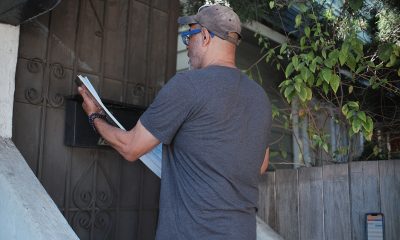
 West Hollywood3 days ago
West Hollywood3 days agoAdvocates, councilmembers and students are mobilizing for Prop 50 around the city
-
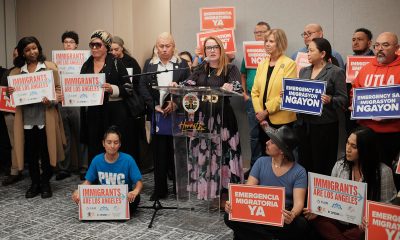
 Los Angeles1 day ago
Los Angeles1 day agoL.A. County Supervisors vote to declare local emergency in support of immigrant community members
-

 Books4 days ago
Books4 days agoNew book a fun travelogue, memoir focused on cemeteries
-

 Movies7 hours ago
Movies7 hours agoBreakthrough queer performance makes for a memorable ‘Kiss’
-

 a&e features2 days ago
a&e features2 days agoBangers and beats and bears, oh my! Tom Goss dishes on his music and the queer community
-
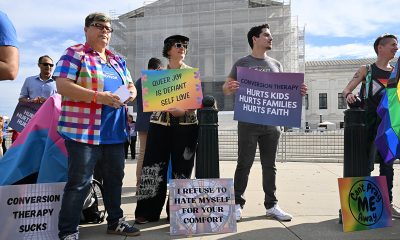
 opinions8 hours ago
opinions8 hours agoOn free speech and the harms of conversion therapy
-
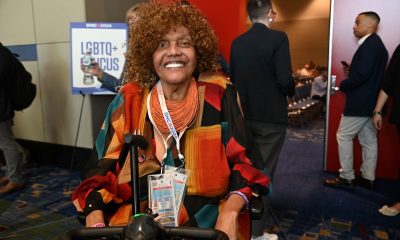
 National1 day ago
National1 day agoTrans rights activist Miss Major Griffin-Gracy dies at 78
-

 California24 minutes ago
California24 minutes agoGovernor Newsom has vetoed two bills aimed to improve PrEP and gender-affirming care access

